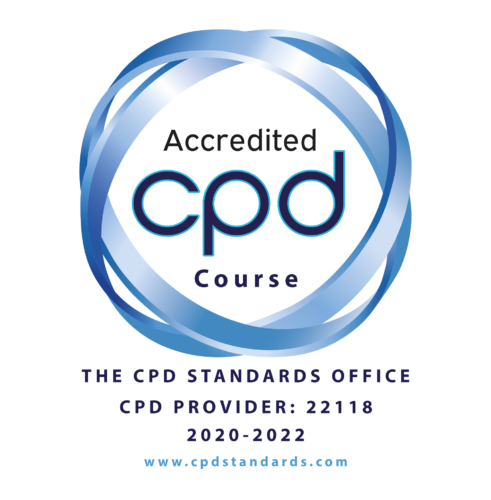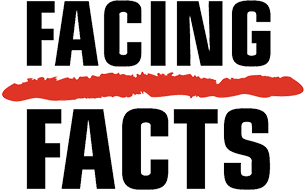Private: Facing Facts Online course on identifying, monitoring and responding to hate crime
What is this course about?
Most of us probably think we know what hate crime is, but when it comes to the big questions, the answers might not be so obvious. Who is the most targeted? What makes hate crime different from other crimes? How big of a problem is it? How do I measure the problem and assess the effectiveness of responses to it? Facing Facts has been supporting learners to engage with these questions as part of our online learning since 2015.
Designed and delivered by our experts, this new four-week CPD Standard Office accredited course supports learners to:
- Understand the hate crime concept
- Identify and monitor the most common forms of hate crime and their impact on victims and communities
- Use monitoring and quantitative data to advocate and secure improved safety, support and justice for victims and communities
- Explore what we know and can understand about the immediate and longer-term impact of global crisis on at-risk communities
Spaces are limited. Please, take into account when applying that the course demands active participation in the discussion forum and in live tutorials. As we tend to receive much more registrations than the places we can offer, we ask that you only apply for this programme if you are willing to contribute with your participation.
Register now: the programme starts October 24th
| Length | 4 weeks |
| Location | Online |
| Start | 24th October |
| Commitment | 3 hours per week |
| Methods and materials | Video presentations, live tutorials, research exercises, ‘in-conversation’ pieces with key practitioners, quizzes, discussion forums, links to resources, practice examples and case studies |
| Language | English |
| Certificate | Yes |
Who is this course for?
At Facing Facts, we understand that when it comes to recording and data collection on hate crime and keeping victims safe, no single agency or institution has the full picture. This course is for the following organisations and institutions that need to work together for the benefit of victims and communities:
- civil society organisations that monitor hate crime and provide victim support
- police who investigate and prevent crime
- prosecutors who bring cases through the criminal justice process
- civil servants and policymakers who make decisions on resources and rules
- those working for equality bodies and international organisations and agencies.
Who are my teachers?
Course materials have been developed by a team of practitioners with a range of experience across NGO, international and public authority sectors. Your tutors will be Joanna Perry and Melissa Sonnino who have many years of experience in the field.
What do previous students say?
I already explore other courses on Facing Facts Online, and I realize that the platform has covered a great range of learning opportunities for the aspects of racism and how to face them.
Thank you very much for such a wonderful course! I thoroughly enjoyed it. Melissa and Joanna were both excellent and kept us focused. A huge thank you for everything.
How will I learn?
The course provides a virtual space for discussion and dialogue. It aims to encourage the flow of information between different stakeholders, as well as the possibility of improving solidarity and cooperation between these.
You will be supported to follow your particular interests through selected case studies and course materials to ensure that the course is relevant to your work context.
You will engage with your fellow learners, course tutors and visiting experts through discussion forums, live tutorials and online activities.
Video presentations, research exercises, ‘in-conversation’ pieces with key practitioners, quizzes, and discussion forums, links to resources, practice examples and case studies, all comprise our methodology.
Together we will discuss and explore contemporary challenges, such as how the pandemic affects already at-risk communities including migrants and refugees, the work of NGOs offering victim support, or how data can be collected in such times.
 What is a CPD Standard Office accredited course?
What is a CPD Standard Office accredited course?
The CPD training accreditation is an indicator that the training delegates are undertaking is of the highest quality, and it ensures that you and your knowledge stay up to date with current industry trends and best practices.
How can I get a certificate?
We want to make this learning as accessible as possible during these challenging times. You can take the whole course for free and attend online, live tutorials and discussions. If you would like to apply for a certificate, having successfully completed the course, we suggest that you pay 250 euros. The certificate will detail your achievements and can be uploaded onto professional platforms such as your LinkedIn profile. If you would like to apply for a certificate, but you have very limited resources, we can discuss the possibility of a discount with you.
Since we are a not-for-profit organisation, by applying for a certificate you also support the platform and further course developments.
Registration opens August 22nd. Registration closes on October 2nd 2022. As limited spaces are available, we recommend you sign up as soon as possible to avoid disappointment.
How can I register?
Click here to fill out the online registration form to indicate your interest until the 2nd October.
* * *




 Facing Facts is co-funded by the Citizens, Equality, Rights and Values Programme
Facing Facts is co-funded by the Citizens, Equality, Rights and Values Programme